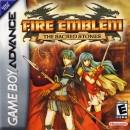Hello everyone. I'm finally eligible to create a thread of my own, so I hope you enjoy it.
There has been a decent amount of talk on this site and elsewhere about Nintendo failing to properly support the Wii over the past two years.
I happen to agree that this is, unfortunately, the case. But it got me wondering about how Nintendo's support (or lack thereof) for Wii compared to its support for other previous-generation consoles with a next-generation console on the way.
So I've done a bit of research on the topic. Let me explain the parameters. I looked at software released on the last-generation system in an 18-month window before the release of the next-generation system. I limited the software to first-party published games, and I precluded games that were released after the launch of the next-generation system. In other words, Twilight Princess (GCN) is out and Donkey Kong Country 3 is out. Another important note: these are all North American release dates.
I selected what I consider the most high-profile or highest-rated games. Please add others that I missed. I did my absolute best to be as thorough as possible.
If there is any interest in this thread, I would be happy to work on a follow-up that includes Sega, Sony, Microsoft, etc.
Enjoy!
Support for NES
February 23, 1990 - August 23, 1991
1) Nintendo World Cup (December, 1990)
2) Dr. Mario (October, 1990)
3) Final Fantasy (May, 1990)
Support for SNES
March 29, 1995 - September 29, 1996
1) Kirby Super Star (September 20, 1996)
2) Tetris Attack (August, 1996)
3) Super Mario RPG: Legend of the Seven Stars (May 13, 1996)
4) Donkey Kong Country 2: Diddy's Kong Quest (December 14, 1995)
5) Super Mario World 2: Yoshi's Island (October 4, 1995)
6) Killer Instinct (August 30, 1995)
7) EarthBound (June 5, 1995)
8) Kirby's Avalanche (April 25, 1995)
Support for N64
May 18, 2000 - November 18, 2001
1) Mario Party 3 (May 7, 2001)
2) Dr. Mario 64 (April 8, 2001)
3) Pokemon Stadium 2 (March 28, 2001)
4) Paper Mario (February 5, 2001)
5) Banjo-Tooie (November 20, 2000)
6) The Legend of Zelda: Majora's Mask (October 26, 2000)
7) Mario Tennis (August 28, 2000)
8) Kirby 64: The Crystal Shards (June 26, 2000)
Support for Gamecube
May 19, 2005 - November 19, 2006
1) Baiten Kaitos Origins (September 25, 2006)
2) Odama (April 10, 2006)
3) Super Mario Strikers (December 5, 2005)
4) Mario Party 7 (November 7, 2005)
5) Fire Emblem: Path of Radiance (October 17, 2005)
6) Pokemon XD: Gale of Darkness (October 3, 2005)
7) Battalion Wars (September 19, 2005)
8) Mario Superstar Baseball (August 29, 2005)
Support for Wii
May 18, 2011 - November 18, 2012
1) Xenoblade Chronicles (April 6, 2012)
2) Mario Party 9 (March 11, 2012)
3) Rhythm Heaven Fever (February 13, 2012)
4) Fortune Street (December 5, 2011)
5) The Legend of Zelda: Skyward Sword (November 20, 2011)
6) Kirby's Return to Dream Land (October 24, 2011)
Note: I did not include The Last Story, since it was published by Xseed in N. America.



























































